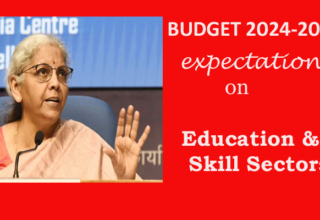
Education stands as a linchpin for economic growth, talent acquisition, and employability. It also acts as the crucible that shapes the job market and fuels the critical processes of upskilling and reskilling—needed for propelling every economy. As per data from the World Bank, each additional year of education for the population can bolster a country’s GDP by an impressive 0.58%.
At the same time, in an era marked by the ceaseless pursuit of knowledge, PwC’s 23rd Annual Global CEO Survey reveals that three-quarters of CEOs express profound concerns regarding the availability of key skills among the future employees. These concerns may thwart their ability to acquire, develop, and retain essential talent for growth. The World Economic Forum’s prediction that nearly 50% of all employees will require reskilling by 2025 accentuates the unassailable importance of preparing our students with proficiencies in problem-solving, critical thinking, and adaptability. Then, recent research from the National Employability Report said that approximately 62% of businesses in India are actively seeking candidates with specific skill sets. This data serves as a clarion call, underscoring the urgency for a more profound collaboration between educational institutions and employers to bridge this looming skills gap. Hence, the cultivation of lifelong learning becomes paramount to maintaining a competitive edge in the job market.
Education wields considerable influence over the job market, particularly in sectors such as Information Technology (IT), Healthcare, and Renewable Energy. These industries, as highlighted in the Indian Skills Report 2022, are poised for substantial growth in the coming decade, surpassing traditional fields. It is imperative that we prioritize subjects and fields of study that align with these emerging trends.
India’s projected job growth over the next 5 years is over 20% across a range of emerging technologies. Students will be expected to master skills pertaining to AI/ML, data science, blockchain, cybersecurity, and so on. Owing to a high specialized technology adoption rate of nearly 60% in various industries, the tech-driven segments are some of the fastest-growing and most promising sectors for aspirants.
Indian education system finds itself at a crossroads, primarily necessitating realignment with the discerning demands of industry. With over 60% of organizations predicting massive job growth led by the rising ESG standards, leaders and stakeholders will be required to forge and sustain partnerships with academic institutions, governing bodies and service providers who are geared towards building resilience and managing talent efficiently.
Education should unequivocally serve as the keystone for our nation’s growth and progress, ultimately contributing to the development of a well-educated and skilled workforce that underpins a thriving nation and economy. Education should be the great equalizer, providing equal opportunities for individuals from diverse backgrounds, especially in the age of remote and hybrid work. Our focus should not be confined solely to securing jobs but to creating them. Data from the Global Entrepreneurship Monitor underscores a direct correlation between entrepreneurial activity and economic growth Integrating India’s digital momentum with thorough upskilling and necessary education is pivotal in fostering a workforce capable of making significant contributions to the ever-changing landscape of the Indian economy. Our education system must adapt in line with the National Education Policy, 2020, designed to meet India’s developmental needs and aspirations in the 21st century.
There is a need to foster collaborative leadership among governments, educational institutions, and industry leaders. Such collaboration is pivotal in bridging the skills gap, generating more job opportunities, and ensuring that our education system empowers our youth to excel in an ever-changing world.
(Based on inputs from NLB Services, a HR recruitment services company)










